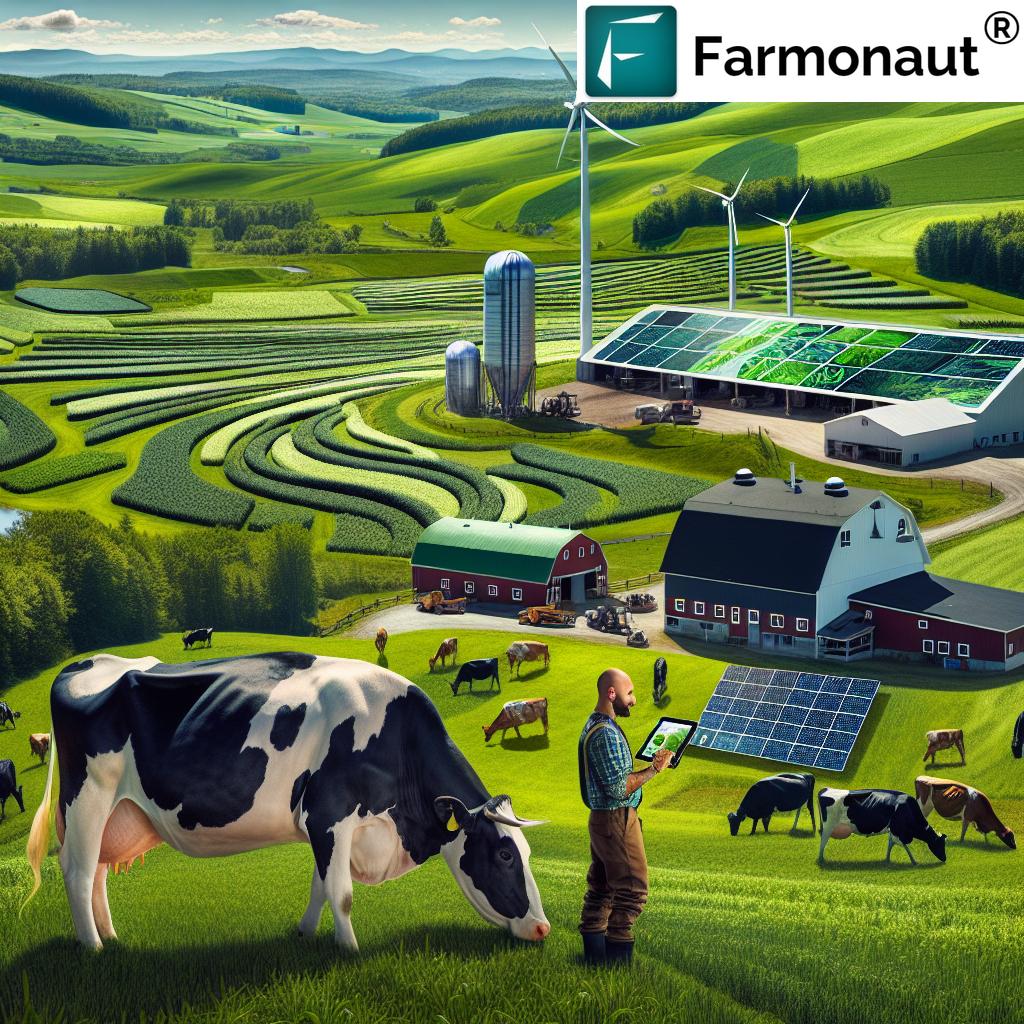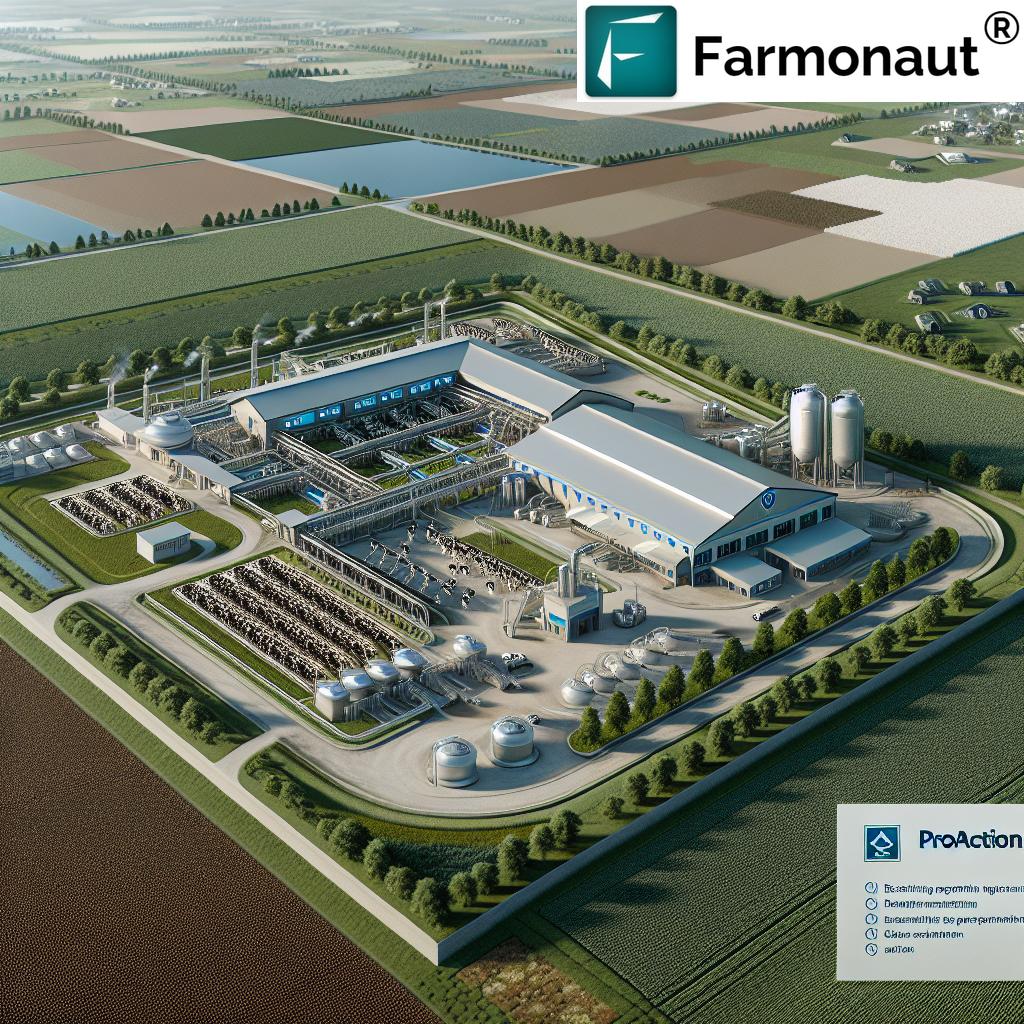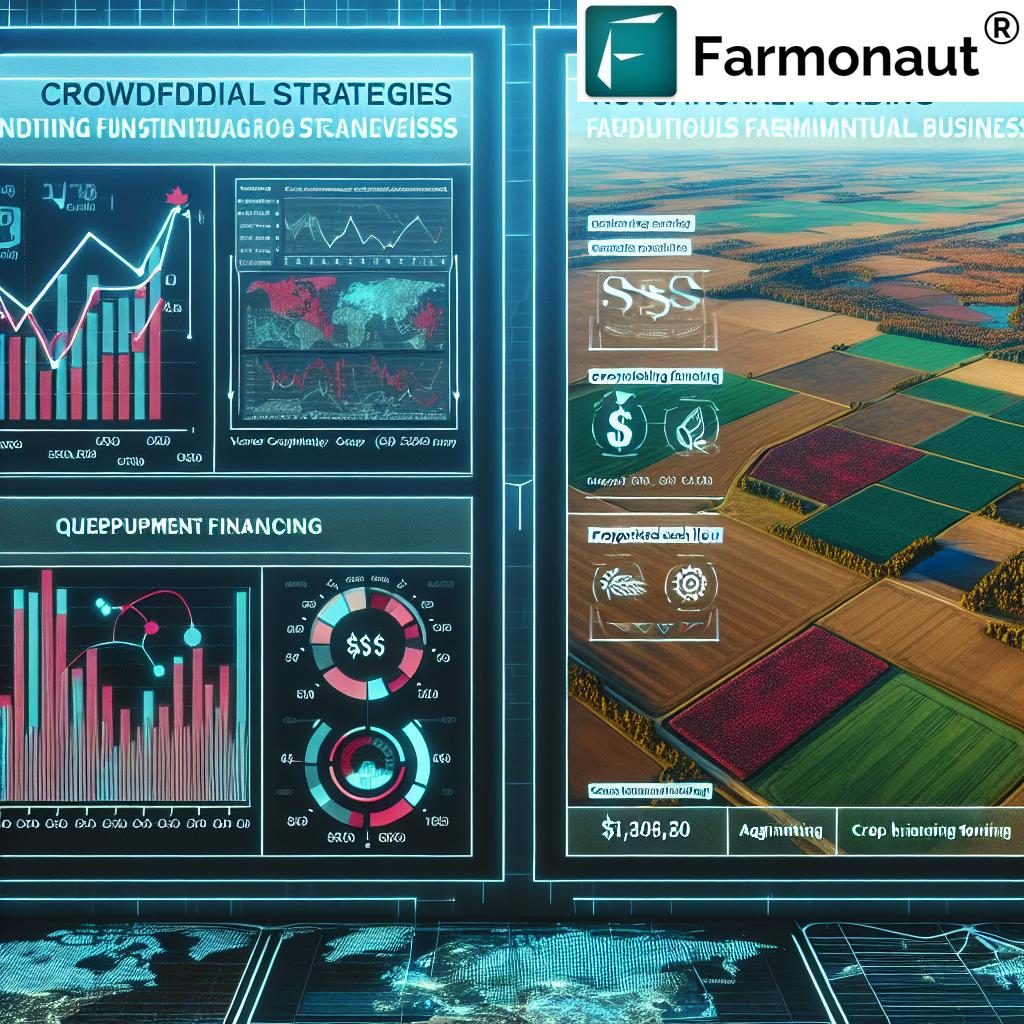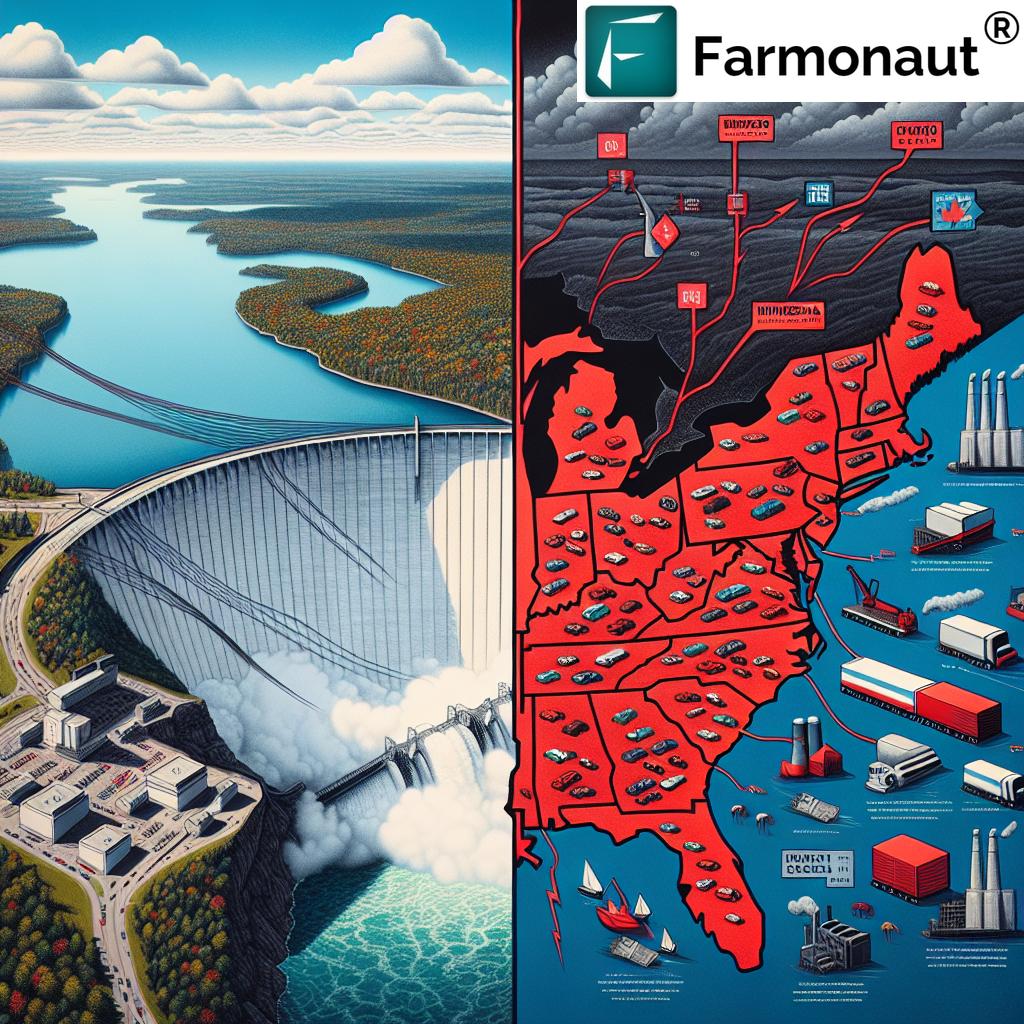Canadian Dairy Farmers: Pioneering Sustainable Agriculture for a Net-Zero Future
“Canadian dairy farmers have reduced their carbon footprint by 22% per liter of milk produced since 2011.”
Welcome to an insightful exploration of how Canadian dairy farmers are revolutionizing sustainable agriculture and milk production. As we delve into the world of dairy farming in Canada, we’ll uncover the industry’s unwavering commitment to achieving net-zero emissions, innovative farming methods, and environmental stewardship. Join us on this journey as we discover how the Canadian dairy industry is shaping a more sustainable future for agriculture.
The Canadian Dairy Industry: A Leader in Sustainability
Canadian dairy farmers have long been at the forefront of sustainable agriculture practices. With a rich history of innovation and a deep-rooted commitment to environmental stewardship, the industry has made significant strides in reducing its carbon footprint while maintaining the high quality of dairy products that Canadians have come to love and trust.
As we explore the various aspects of sustainable dairy farming in Canada, we’ll see how farmers across the country, from Quebec to British Columbia, are embracing eco-friendly practices that benefit both the environment and consumers. Let’s begin by examining the industry’s commitment to sustainability and the proAction® certification program.
proAction®: Ensuring High Standards in Dairy Farming
At the heart of Canadian dairy farming’s sustainability efforts lies the proAction® certification program. This comprehensive initiative ensures that dairy farms across the country adhere to the highest standards in food safety, animal care, and sustainability practices.
- Food Safety: Rigorous protocols to ensure the production of safe, high-quality milk
- Animal Care: Strict guidelines for the humane treatment and well-being of dairy cows
- Environmental Stewardship: Practices to minimize the environmental impact of dairy farming
- Traceability: Systems to track the movement of animals throughout the supply chain
- Biosecurity: Measures to prevent the introduction and spread of disease
The proAction® program is a testament to the Canadian dairy industry’s commitment to continuous improvement and sustainable practices. By participating in this program, farmers demonstrate their dedication to producing high-quality dairy products while prioritizing animal welfare and environmental protection.

Regenerative Agriculture: Nurturing Soil Health and Boosting Productivity
Canadian dairy farmers are increasingly adopting regenerative agriculture techniques to improve soil health and boost farm productivity. These practices not only enhance the sustainability of dairy operations but also contribute to the long-term health of the land.
Some key regenerative agriculture practices employed by Canadian dairy farmers include:
- Cover Cropping: Planting diverse cover crops to protect and enrich the soil
- Rotational Grazing: Implementing strategic grazing patterns to promote healthy pastures
- Reduced Tillage: Minimizing soil disturbance to preserve soil structure and biodiversity
- Composting: Recycling organic matter to improve soil fertility
By embracing these regenerative practices, Canadian dairy farmers are not only improving the health of their soil but also increasing the resilience of their farms to climate change and other environmental challenges.
Cutting-Edge Research: Driving Innovation in Dairy Farming
The Canadian dairy industry is deeply committed to research and innovation, constantly seeking new ways to improve sustainability, animal welfare, and product quality. Numerous research initiatives across the country are driving technological advancements in crop management and herd health.
Some key areas of research include:
- Precision Agriculture: Developing technologies for more efficient resource use
- Genomics: Improving cow health and milk production through genetic research
- Feed Efficiency: Optimizing dairy cow nutrition for reduced environmental impact
- Methane Reduction: Exploring strategies to minimize enteric methane emissions
These research efforts are crucial in helping Canadian dairy farmers stay at the forefront of sustainable agriculture practices and contribute to the industry’s goal of achieving net-zero emissions.
Water Conservation: A Key Priority for Canadian Dairy Farms
Water is a precious resource, and Canadian dairy farmers are taking significant steps to conserve and protect it. Through innovative water management practices, the industry is reducing its water footprint while maintaining high standards of cleanliness and animal care.
Some water conservation strategies employed by Canadian dairy farms include:
- Water Recycling: Reusing water from milk cooling systems for cleaning
- Efficient Irrigation: Implementing precision irrigation techniques to minimize water waste
- Rainwater Harvesting: Collecting and storing rainwater for farm use
- Streambank Protection: Preserving natural waterways on farm properties
These efforts not only help conserve water but also contribute to the overall sustainability of dairy operations across Canada.
Biodiversity Preservation: Fostering Healthy Ecosystems on Dairy Farms
Canadian dairy farmers recognize the importance of biodiversity in maintaining healthy ecosystems and sustainable agricultural practices. Many farms across the country are implementing measures to protect and enhance biodiversity on their properties.
Some biodiversity preservation initiatives include:
- Habitat Creation: Establishing wildlife corridors and pollinator gardens
- Native Plant Conservation: Preserving and restoring native plant species
- Wetland Protection: Safeguarding natural wetlands on farm properties
- Integrated Pest Management: Using biological control methods to reduce pesticide use
By fostering biodiversity, Canadian dairy farms are creating more resilient and sustainable agricultural ecosystems.
“Over 90% of Canadian dairy farms participate in the proAction® certification program for sustainable and ethical practices.”
Carbon Reduction Strategies: Paving the Way to Net-Zero Emissions
The Canadian dairy industry has set ambitious goals for reducing its carbon footprint, with a commitment to achieving net-zero emissions by 2050. To reach this target, farmers across the country are implementing a variety of carbon reduction strategies.
Key carbon reduction initiatives include:
- Energy Efficiency: Upgrading to energy-efficient equipment and lighting
- Renewable Energy Adoption: Installing solar panels and biogas digesters
- Carbon Sequestration: Implementing practices to increase soil carbon storage
- Feed Optimization: Improving feed efficiency to reduce methane emissions
These efforts are not only reducing the industry’s environmental impact but also improving the overall efficiency and sustainability of dairy operations.

The Role of Technology in Sustainable Dairy Farming
Technology plays a crucial role in advancing sustainable practices in Canadian dairy farming. From precision agriculture tools to advanced monitoring systems, farmers are leveraging cutting-edge technologies to optimize their operations and reduce their environmental impact.
One such technological solution is provided by Farmonaut, a pioneering agricultural technology company that offers advanced, satellite-based farm management solutions. Farmonaut’s platform provides valuable services such as real-time crop health monitoring, AI-based advisory systems, and resource management tools.
Through its innovative technologies, Farmonaut is helping Canadian dairy farmers:
- Monitor crop health and optimize feed production
- Improve resource management and reduce waste
- Make data-driven decisions for more sustainable farming practices
- Track and reduce their carbon footprint
By integrating these advanced technologies into their operations, Canadian dairy farmers are better equipped to meet their sustainability goals while maintaining high levels of productivity.
Explore Farmonaut’s solutions:
Nutritional Benefits of Canadian Dairy Products
While focusing on sustainability, it’s important to highlight the nutritional benefits of dairy products produced by Canadian farmers. These products are not only environmentally friendly but also packed with essential nutrients that contribute to a healthy diet.
Key nutritional benefits of Canadian dairy products include:
- High-Quality Protein: Essential for muscle growth and repair
- Calcium: Crucial for strong bones and teeth
- Vitamin D: Important for calcium absorption and immune function
- Vitamin B12: Necessary for red blood cell formation and neurological function
By choosing Canadian dairy products, consumers can enjoy these nutritional benefits while supporting sustainable farming practices.
The Future of Canadian Dairy: Embracing Innovation for Sustainability
As we look to the future, the Canadian dairy industry continues to evolve and adapt to meet the challenges of climate change and increasing demand for sustainable food production. By embracing innovation, implementing sustainable practices, and leveraging advanced technologies, Canadian dairy farmers are well-positioned to lead the way in sustainable agriculture.
Some key areas of focus for the future include:
- Circular Economy Approaches: Developing closed-loop systems to minimize waste
- Advanced Genetics: Breeding more efficient and climate-resilient dairy cows
- Alternative Energy Sources: Expanding the use of renewable energy on farms
- Precision Nutrition: Optimizing feed formulations for reduced environmental impact
As the industry continues to innovate and adapt, Canadian dairy farmers remain committed to producing high-quality, nutritious dairy products while minimizing their environmental footprint.
Canadian Dairy Sustainability Metrics
| Sustainability Metric | Current Status | 2030 Target | Net-Zero Target (2050) |
|---|---|---|---|
| Carbon Emissions (tonnes CO2e/year) | 10 million | 7 million | Net-zero |
| Water Usage (liters/kg milk produced) | 5.4 | 4.5 | 3.5 |
| Renewable Energy Adoption (% of farms) | 15% | 40% | 100% |
| Soil Health Index | 6.5 | 7.5 | 8.5 |
| Biodiversity Score | 70 | 80 | 90 |
| proAction® Certified Farms (%) | 90% | 100% | 100% |
Frequently Asked Questions (FAQ)
Q1: What is the proAction® certification program?
A1: proAction® is a comprehensive certification program for Canadian dairy farms that ensures high standards in food safety, animal care, sustainability practices, traceability, and biosecurity.
Q2: How are Canadian dairy farmers reducing their carbon footprint?
A2: Canadian dairy farmers are reducing their carbon footprint through various strategies, including energy efficiency improvements, renewable energy adoption, carbon sequestration practices, and feed optimization to reduce methane emissions.
Q3: What are some regenerative agriculture practices used by Canadian dairy farmers?
A3: Canadian dairy farmers employ regenerative agriculture practices such as cover cropping, rotational grazing, reduced tillage, and composting to improve soil health and boost farm productivity.
Q4: How does technology contribute to sustainable dairy farming in Canada?
A4: Technology plays a crucial role in sustainable dairy farming through precision agriculture tools, advanced monitoring systems, and platforms like Farmonaut that provide real-time crop health monitoring, AI-based advisory systems, and resource management tools.
Q5: What are the nutritional benefits of Canadian dairy products?
A5: Canadian dairy products are rich in high-quality protein, calcium, vitamin D, and vitamin B12, contributing to a healthy diet and overall well-being.
Conclusion: A Sustainable Future for Canadian Dairy
As we’ve explored throughout this blog post, Canadian dairy farmers are at the forefront of pioneering sustainable agriculture practices. Their commitment to innovation, environmental stewardship, and producing high-quality, nutritious dairy products is shaping a more sustainable future for the industry.
From the implementation of the proAction® certification program to the adoption of regenerative agriculture techniques and cutting-edge technologies, Canadian dairy farmers are demonstrating that it’s possible to balance productivity with environmental responsibility. As they continue to work towards their goal of net-zero emissions by 2050, these farmers are setting an example for sustainable agriculture worldwide.
By supporting Canadian dairy products, consumers can not only enjoy nutritious and delicious foods but also contribute to a more sustainable food system. As we look to the future, the Canadian dairy industry remains committed to continuous improvement, innovation, and environmental stewardship, ensuring that future generations can continue to enjoy the benefits of sustainable dairy farming.
Explore Farmonaut’s API for advanced agricultural insights:
Farmonaut API
API Developer Docs
















